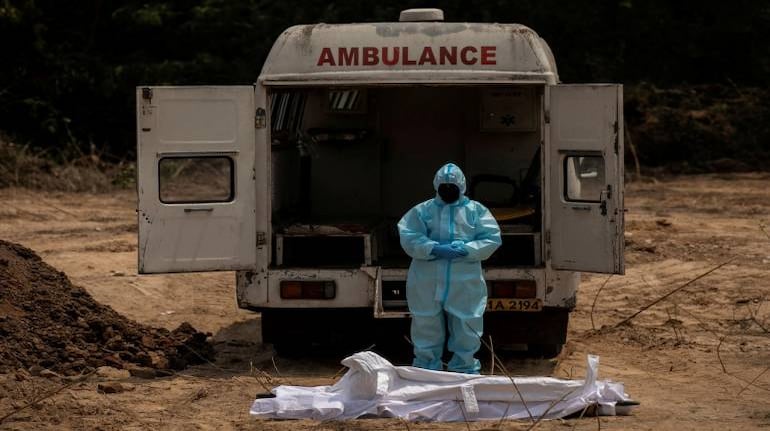



At a time when India cheers in unison lauding the efforts of medical professionals, a doctor, who succumbed to coronavirus in Chennai, in Tamil Nadu, was denied his right to a decent burial earmarked for that purpose. In this scenario we ask: Is clapping hands enough?
The COVID-19 pandemic has not only presented a health, safety and financial crisis, but also a crisis of faith in the final journey of humans. The Right to Life is an extensive concept, which states that no person shall be deprived of his/her life or liberty or property, except according to procedure established by law. In a first, Supreme Court in the case of Kharak Singh, 1963 considered the expanse of Article 21 by hinting at the treatment of corpses in the following words – “it is every kind of deprivation that is hit by Article 21, whether such deprivation is permanent or temporary.”
Cementing this notion, the Madras High Court held that the fundamental right to life guaranteed under the Article 21 includes the right to decent burial or cremation. Tamil Nadu went a step ahead by issuance of an ordinance imposing a three-year jail term on anyone found in violation of the same.
Similar incidents cropped up in Meghalaya and the high court directed the state government to sensitise public, especially where the burial or cremation grounds are situated, to avoid any further unfortunate incidents. Our judiciary, on several occasions, stood for right to burial with ‘dignity’ and further clarified that a corpse must be treated with the same dignity as a living being. Moreover, the corpse must be buried according to his/her culture and tradition.
Despite the subsisting right, people dying on account of the pandemic have been denied their fundamental right with the impeding fears that the virus may spread through the burial or cremation of the corpse. Realising this, Ministry Of Health and Family Welfare issued guidelines on dead body management to safeguard the right of human corpse, which are in line with guidelines issued by the World Health Organization (WHO). The guidelines also permit relatives of deceased to see the body, albeit subject to adherence of infection prevention control practices, which include a total restrain on physical contact with the dead body.
The right to a dignified burial has raised controversies world over. Recently, Sri Lanka mandated the cremation of dead bodies of COVID-19 patients or suspects; however this has been resented by the Muslims, who, by custom, follow the burial method. In response to such protests, the government cited the deadly nature of the virus to override religious customs for dead body management.
Moreover, the United Kingdom introduced the Coronavirus Act 2020 permitting the local authority to disregard Section 46(3) of the Public Health (Control and Disease) Act, 1984, aimed to preclude local authority from being able to cremate the body against the wishes of deceased overbearing his/her beliefs. Countries worldover share the sentiment of public health and safety over adherence of religious rituals, which may potentially have dire consequences on the mortality and financial wellbeing of the economy at large.
Apart from a high number of positive cases and mortality rates, the COVID-19 outbreak has led to mass unemployment, stock market uncertainties and hints at an impending economic gloom worldwide. Loss of loved ones can be disturbing, disconcerting and difficult to process, particularly with so many unknowns at present.
State government orders overriding religious customs for dead bodies should in no way be deemed discriminatory, but is a proportionate measure to curb infections and deaths in the pretext of the virus, while simultaneously ensuring public safety and economic wellbeing of India. It is important to remember that this is temporary, and is the modus Vivendi to navigating the rough waters of COVID-19, individually but together.
Sonam Chandwani Managing Partner, KS Legal and Associates. Views are personal.Discover the latest Business News, Sensex, and Nifty updates. Obtain Personal Finance insights, tax queries, and expert opinions on Moneycontrol or download the Moneycontrol App to stay updated!
Find the best of Al News in one place, specially curated for you every weekend.
Stay on top of the latest tech trends and biggest startup news.